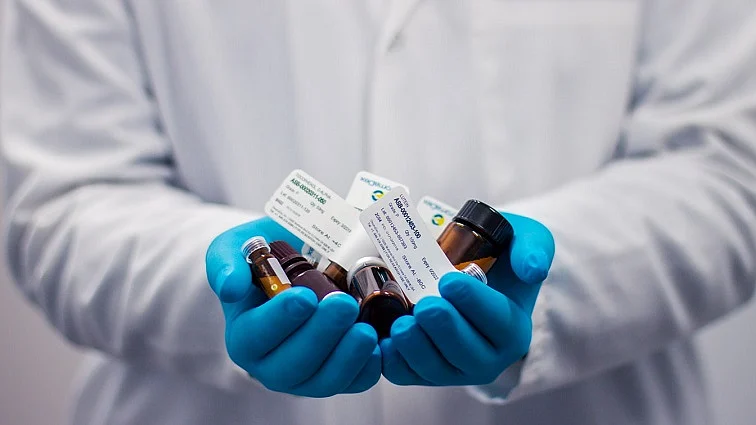Can the race for a vaccine outrun the pace of the virus?
Labs around the world are racing against time, testing new technologies. Meanwhile, the spread of COVID-19 continues unabated

More than 90 vaccines are being developed against COVID-19, by various research teams of pharmaceutical companies, biotech firms, universities and governments across the world. Seven of the roughly 90 projects have reached the stage of clinical trials. But the whole exercise remains dogged by uncertainty about whether any of these vaccines will prove effective against the Novel Coronavirus and whether the speed of the vaccine development can outwit the speed of virus spread. Vaccine development - a process that can generally take up to 10 years is being compressed into 10 months. Researchers are trying different technologies, some of which have never been used in a licensed vaccine before. All vaccines aim to expose the body to an antigen that will induce an immune response, especially the production of antibodies, that can block or kill the virus if a person becomes infected.
At least seven research teams are developing a vaccine, using the virus itself in its inactivated form. Many existing vaccines are made in this way, such as those against measles and polio. Around 25 research teams are working on viral-vector vaccines. A virus such as measles is genetically engineered so that it can produce Coronavirus proteins in the body. These genetically engineered viruses are weakened so they cannot cause disease. Another 20 research teams are aiming to use genetic instructions (in the form of DNA or RNA) for a Coronavirus protein that prompts an immune response. The full form o fDNA is Deoxyribonucleic acid. RNA stands for Ribonucleic Acid. It is one of the major biological macromolecules that is essential for all known forms of life. It performs various important biological roles related to protein synthesis such as transcription, decoding, regulation and expression of genes. Some research teams want to inject Coronavirus proteins directly into the body. About 28 research teams are working on protein-based vaccines.
More than 70% of the teams leading vaccine research efforts are from the private firms. Balance research groups are from non-profit organisations or academic institutions. USA, China, Australia, Europe and Asia (including India) are in the race.
In this worldwide race, the laboratory sprinting fastest is at the Oxford University. The university’s Jenner Institute had a head start on a vaccine and is scheduled for tests of their new vaccine involving more than 6,000 people, by the end of next month. Meanwhile, German regulatory body PEI has green-signaled the country’s first trials on human volunteers for a vaccine developed by German firm Biontech and US giant Pfizer.
Aside from Germany's Biontech and UK's Oxford University, three other clinical trials on humans have been approved worldwide since mid-March, with Chinese and US developers amongst the first to move. Beijing, on March 16,approved the first trial for a vaccine developed by the military-backed Academy of Military Medical Sciences and Hong Kong-listed biotech firm CanSino Bio. US drug maker Moderna said it has begun human tests for their vaccine in collaboration with the US National Institutes of Health. Another US lab, San Diego-based Inovio Pharmaceuticals, began first phase human trials on April 6.
In India, the Pune- based Serum Institute of India is leading the country's research efforts to produce a vaccine. “While the clinical trials have already commenced in the UK, we are simultaneously initiating production as well, in the hope that when the trials are successful, we will have the first batch of doses ready for use by September or October,” said Adar Poonawala, CEO of Serum Institute of India. The intensity of the global research effort is such that companies are building production lines even before they have successfully tested the vaccine. “You don’t wait until you get an answer before you start manufacturing,” said Dr. Anthony S. Fauci, the US federal government’s top expert on infectious diseases.
The race for the vaccine development is sprinkled with liberal doses of national pride, geopolitical crosscurrents, profit motives and of course a genuine desire to defeat the virus.
(V Venkateswara Rao is a retired corporate professional and a freelance writer)
Follow us on: Facebook, Twitter, Google News, Instagram
Join our official telegram channel (@nationalherald) and stay updated with the latest headlines
